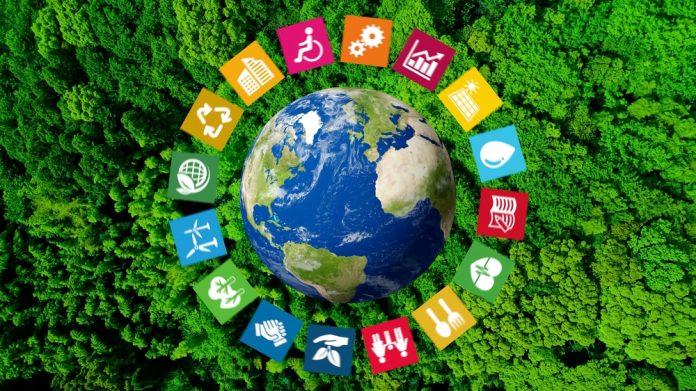A new study reveals that climate change, the most pressing threat to global socio-economic development and the environment, demands a reimagining of the United Nations Sustainable Development Goals (SDGs).
The University of Birmingham’s research underscores the need for an integrated approach to infuse climate resilience into every facet of the SDGs. Experts argue this is the only viable path to securing a sustainable future for our planet.
What are the UN Sustainable Development Goals?
Adopted in 2015, the 17 UN Sustainable Development Goals represent a global agenda to address urgent challenges by 2030.
These goals, established through extensive consultations with nations, organisations, and civil society, aim to:
- End poverty in all its forms everywhere.
- Eradicate hunger, improve food security, and promote sustainable agriculture.
- Ensure healthy lives and well-being for all ages.
- Guarantee equitable, inclusive education and lifelong learning opportunities.
- Achieve gender equality and empower women and girls.
- Provide access to clean water and sanitation.
- Ensure access to affordable, reliable, and sustainable energy.
- Promote sustainable economic growth and decent work for all.
- Build resilient infrastructure and foster innovation.
- Reduce inequality within and among countries.
- Create sustainable cities and communities.
- Ensure sustainable consumption and production patterns.
- Take urgent action to combat climate change and its impacts.
- Conserve and sustainably use marine resources.
- Protect and restore terrestrial ecosystems.
- Promote peaceful, inclusive societies with access to justice for all.
- Strengthen global partnerships for sustainable development.
These interlinked goals strive to create a world free of poverty and inequality while fostering environmental stewardship. Yet, climate change challenges their implementation.
Lead author Dr Ajit Singh added: “Embedding climate action within each SDG would ensure that climate resilience is a core component of sustainable development.
“If we fail to resolve tensions between development goals and climate action, we will find it impossible to secure the future of our planet and its people.”
Climate action: The key to SDG success
Following discussions at COP29 in Baku, University of Birmingham researchers argue that integrating climate resilience into the SDGs is vital.
The interdisciplinary team has developed a five-point action plan to align climate goals with the SDG framework. Key recommendations include:
- Harmonising the Paris Agreement and SDGs: Establish a cohesive roadmap for sustainable development.
- Setting short- and long-term targets: A structured approach ensures immediate action alongside future planning.
- Empowering local communities: Locals must play a central role in creating and executing climate policies.
- Developing unified financial systems: Focus on climate resilience, especially in vulnerable regions.
- Creating an international climate panel: Foster knowledge exchange and collaboration across sectors.
Why climate resilience matters for development
The study highlights how climate change exacerbates poverty, disrupts health systems, and widens inequality.
Its impact on agriculture threatens food security, while its effects on water ecosystems endanger marine biodiversity.
Moreover, climate disasters disproportionately harm vulnerable communities, emphasising the need for localised, inclusive strategies.
Experts emphasise that climate education should be embedded within school curricula to equip future generations with the tools to address environmental challenges.
Climate-resilient policies, such as sustainable agriculture and ocean conservation, are also critical to mitigating damage.
A global responsibility
Although the UN Sustainable Development Goals were crafted collaboratively, their implementation lies in the hands of individual countries.
This decentralised approach demands robust international cooperation to ensure success. Aligning climate action with the UN SDGs not only addresses environmental threats but also promotes equitable social and economic progress.
The call to action is clear: without integrating climate resilience into the UN Sustainable Development Goals, humanity risks undermining its progress on poverty eradication, health equity, and global prosperity.
As the clock ticks closer to 2030, urgent, unified efforts are essential to transform these aspirations into a sustainable reality.





